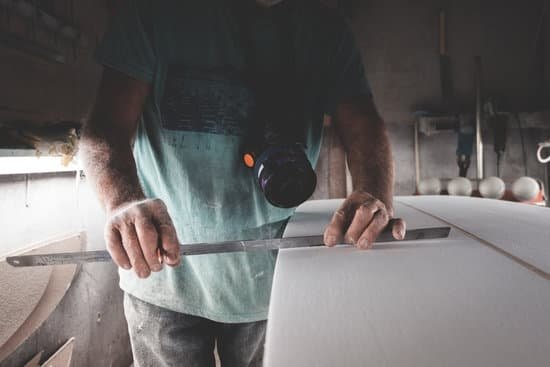Introduction
Woodworking is an enjoyable and rewarding hobby that can result in creating custom pieces like furniture, artwork, decorations and more. Whether working on a large-scale project or small item, having your own woodworking shop allows you to work in a comfortable space as well as maintain control over the entire process”from start to finish. A woodworking shop can also help you save money in the long term because it allows you to purchase high-quality tools that can be used for years instead of purchasing cheaper hardware at a single time.
Before starting your woodworking shop, it’s important to choose what types of projects you will be completing first so that you know what tools will be essential and which ones might not need to be purchased right away. Here’s a list of some basic must-have tools for any woodshop:
1.Table Saw ” This is one of the most versatile and important pieces of equipment for cutting boards into various shapes with ease; they come in both stationary and portable versions so they can fit any budget or address portability needs.
2.Router ” Useful says when making detailed cuts along edges or within existing boards; one should consider their desired end product before selecting the right router bit size and shape.
3.Jointer ” Essential especially when creating cabinets or other larger furniture pieces since it helps create perfectly flat faces/faces suitable for joining two boards together side by side so they remain parallel; this tool comes in a variety of sizes depending on your plans/objectives but should always provide plenty of power so that long runs don’t cause jamming issues mid groove.
4.Sanders ” Sanders are important when trying to make smooth finished products without sanding by hand; floor sanders have large discs which can cover larger surfaces faster while palm sanders use smaller discs for more intricate work such as preparing face frames for cabinetry actions like dovetailing, sliding etc…
5.Chisels and Mallet ” Chisels pare away excess woods while mallets provide ample force to ensure accuracy; they come in various shapes (ranging from wide carpentry chisels to specialized mortise) with hardened tips that slice through hardwoods quickly without breaking off chips during use which helps maintain accuracy throughout an entire project’s life span
6Clamps – Clamps are essential when needing something tightened firmly yet safely”such as binding two pieces together; clamps come in many styles such as bar clamps, Bessy clamps, C-clamps (however these have limited use due to size), pipe clamps, corner clamps, strap clamps and more each designed for specific tasks allowing them perform optimally under given circumstances respectively
Essential Woodworking Tools
When it comes to starting a woodworking shop, having the right tools is essential. Depending on the types of projects you plan to make, the list of necessary tools for a woodworking shop may vary. However, here is a list of some essential items you will likely need:
Table saw: This is one of the most important pieces of equipment you’ll need in your shop because it provides accuracy and stability for all cutting operations.
Jigsaw: A jigsaw provides great versatility for curved cuts and bevels.
Drill press: For drilling holes quickly and accurately, an upright drill press is the way to go.
Random orbit sander: This is essential for making edges smooth before applying finish.
Chisels: When chisels are sharp they can do wonders when carving through tough material or finer details that other tools simply can’t achieve.
Router: To make dadoes, grooves or even round overs, routers are indispensable in any woodshop.
Clamps: Clamping materials together in preparation for gluing or machining is absolutely paramount to achieving precision results so including clamps with several sizes and lengths should come part and parcel with any shop purchase or build out.
Benchtop belt sander/grinder: Being able to remove large amounts of stock from parts requires these sanders/grinders plus they also come in handy for sharpening blades and creating chamfers quickly.
Planer/jointer: Once pieces are cut on a table saw these two machines take over removing twists and warps in boards which makes them more easily used as well as being jointed perfectly flat if needed without hand labor.
Safety gear (gloves, goggles): Last but not least coming up with safety gear should be at the top of anyone’s shopping list; no matter how experienced they may seem in doing woodwork operations safety always remains number one priority!
Different Types of Tools
Power Saws: In woodworking, you will need a variety of power saws. These can include different types of circular saws, table saws, miter saws, and jigsaws. With these tools you can cut different shapes and sizes of wood.
Drills & Drivers: You will also need drills that allow you to drill holes into the wood for screws or other fasteners. You can choose from cordless drills with interchangeable heads for different jobs or buy a full set which includes all types of drills and drivers.
Clamps: Clamps are essential in any woodworking shop and come in all shapes and sizes. They are used to temporarily hold two pieces together while glue or other adhesive sets on a piece of furniture together. The most common type is the bar clamp, but there are also special kinds like corner clamps that make assembling furniture easier.
Kits & Plans: Assembling furniture or building projects from plans requires accurate measurements and careful attention to detail. Woodworking kits come with detailed instructions printed on them so you can complete your project easily, as well as all necessary supplies like screws, bolts and sandpaper. If you prefer, you can purchase plans for specific projects made for beginners through expert level builders too so you know exactly what size lumber to buy and how many parts to make.
Lumber & Boards: Different types of lumber will determine what kind of projects you are able to build in the workshop; softwoods like pine work best for occasional furniture while hardwoods like oak are suitable for more heavy-duty items such as cabinets and countertops. Board materials range from common plywood to more exotic choices like reclaimed barn boards which lend unique character to your projectz.
Add Ons and Accessories
To further accessorize and complete your woodworking shop, there are some additional items that you may want to consider investing in: a dowel jig, routing bits, and measuring tools. A dowel jig lets you create strong joins with dowels, which are great for making furniture frames. The router bits let you create edges like mortises and dadoes with ease and precision. Last but not least, measuring tools (calipers, rulers, tape measurers) will help you to accurately measure the dimensions of your stock and make sure everything is square. Other add ons may include sanding blocks or stations, different clamps for gluing together boards, chisels and other sharpening equipment such as rasps or files that can help detail parts of your workpiece, as well as a band saw if you plan on cutting curved pieces.
Safety Gear and Supplies
When starting a woodworking shop, it is important to first purchase all of the needed safety gear and supplies. This includes work gloves, safety glasses, hearing protection, and breathing protection such as a respirator or dust mask. It is critical that you protect your hands and other areas of your body during any woodworking project in order to prevent injury. Also, make sure to wear non-slip shoes whenever operating power tools to avoid slipping and potential injury.
Tools: Power Tools and Hand Tools
Once the proper safety gear has been purchased for your woodworking shop, you’ll need to pick out the tools that you will be using for your projects. Depending on what type of projects you plan on doing, you’ll want to invest in both power tools and hand tools. Examples of power tools could include a table saw, radial arm saw, miter saw, jigsaw, drill press, belt sander, router table, jointer and more. For handtools consider getting an assortment of chisels and gouges, marking gauges/knives/awls/squares etc., files/raspberry planes/scrapers/etc., several hammers ranging from small framing to large mallets/sledges, clamps/bench stops/dogs etc., hand planes including block rabbet smoothing spoke shave etc., rasps/hacksaws/strong backs or cutting horses etc., draw knives/trouble saws etc., screwdrivers (both slotted and Phillips). Also remember that it is important to maintain the condition of all quality tools by regularly sharpening blades or changing out worn parts.
Setting Up the Perfect Workshop
The first step in setting up the perfect workshop is to decide how you want the space to be used. Do you need a place for projects that use power tools, or do you plan on doing more smaller-scale, hand tool focused work? Once you’ve answered that question, it’s time to select the tools and equipment required for your specific needs.
For basic woodworking projects, you’ll need a variety of saws such as circular saws, band saws and table saws; joinery tools such as routers, biscuit joiners, doweling jigs, rabbet planes and chisels; sanders; hand drills; clamps; hammer and mallet; measuring items such as tape measures and squares; files; blades such as coping saws and jig saws; finishing tools such as stain brushes and varnishes; protective eye wear and breathing masks. A good quality workbench should also be taken into consideration. Depending on your needs and space available for storage, shelves, bins or cabinets may be handy in order to organize all these items.
Other equipment worth considering includes electrical outlets with surge protection throughout the room (ensuring any powered tools are safely wired), dust collection systems to capture chips created by cutting off sources of combustible materials like wood heaters (for added safety) or polishing benches with built-in ventilation (good air circulation is essential). You might also find some helpful additions such as rolling carts to move around large pieces of wood or machinery, or an organizational product like pegboard to hang up frequently-used hand tools.
These are just some ideas for defining the space necessary for a great workshop set-up. With some careful planning ahead of time – even if done on a budget – you can optimize the workspace for creating your own beautiful projects in timber!
The Benefits of Having Your Own Woodworking Shop
Having your own woodworking shop gives you greater control and flexibility. You’ll be able to create custom pieces that reflect your personal style or the look of a particular client with just the right tools. Depending on what types of projects you plan to undertake, you’ll need the following tools:
• Table saw ” A table saw is essential in any workshop and is the backbone of any project. This tool will assist in rip cuts, crosscuts, miters and complex joinery.
• Miter Saw ” A miter saw allows you to make angled cuts reliably. This can range from shallow angle trims to intricate crown moulding cuts or even box joints.
• Router Table ” For quickly creating joinery, a router table is necessary for producing quality work accurately and efficiently.
• Drill Press ” A drill press is necessary for making precision holes quickly and accurately, like mortise and tenon joints which require perfect alignment between them.
• Sander ” An orbital sander helps you get furniture pieces smooth for finishing. Belt sanders are also convenient for larger projects when facing off surfaces or getting an area completely flat before finishing it off with an orbital sander.
• Jigsaw – A jigsaw can help you make curved cuts, plunge cuts, straight cuts as well as scored lines in decorative pieces when required (e.g., birdhouses).
With these essential tools in place at your woodworking shop, combined with your skillset and some creativity–you’ll be able to tackle nearly any woodworking project imaginable!
Conclusion
To begin your journey as a woodworker, you will need to have the essential tools. These include a table saw, circular saw, router, jigsaw, drill/driver combo and belt sander. You may also want to consider getting a band saw, planer, scroll saw and chop saw for more precise cuts. Other useful items include clamps for securing objects onto the workbench and an air compressor for powering certain power tools. Having these items in your workshop is essential and will enable you to start tackling projects of different sizes. Additionally, depending on your type of work you may require additional tools such as joiners or lathes to complete specialized tasks. As you progress as a woodworker it’s always beneficial to add accessories like sanding disks, dust collection systems and chisels that can help enhance the quality of your finished pieces. Finally, safety is important; be sure to stock up on safety glasses, face masks and noise cancelling earmuffs so that all projects can be safely completed! Taking the right first steps toward equipping yourself with all the required materials will help ensure success in setting up your woodworking shop.
Resources
When starting a woodworking shop, it is important to have the right tools to ensure that all projects are started and finished safely and efficiently. Essential tools that should be on everyone’s list when setting up their woodshop include a jigsaw, drill, circular saw, measuring tape, marking/measuring tools (caliper, ruler, etc.), clamps, and of course safety gear such as eye protection. Additionally, depending on the type of project you want to take on in your shop having other specialized tools such as router tables or saw blades may be necessary. When choosing any tool for your workshop it is essential to buy the best quality products so that they are built durable enough to stand up to years of use. Lastly, it is also smart to keep at least one spare of each essential tool so that you always have backup if something malfunctions or breaks. With these essentials plus support from online resources about woodworking skills and tips anyone can create beautiful projects that will last for years!

Hi everyone! I’m a woodworker and blogger, and this is my woodworking blog. In my blog, I share tips and tricks for woodworkers of all skill levels, as well as project ideas that you can try yourself.





